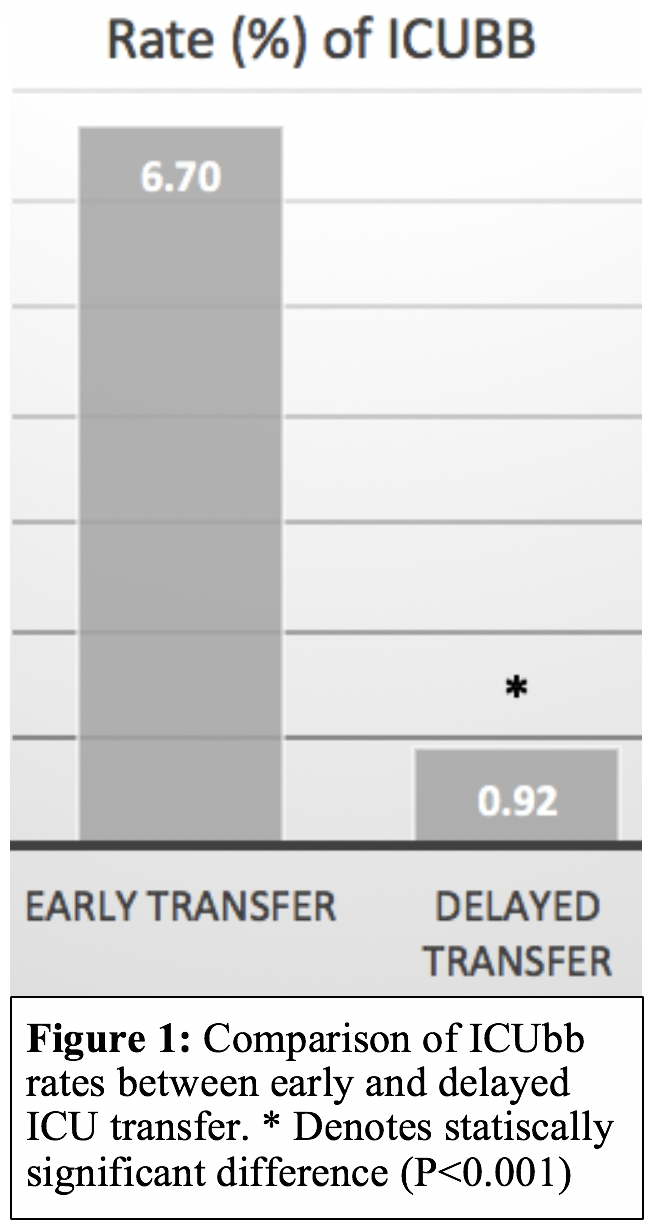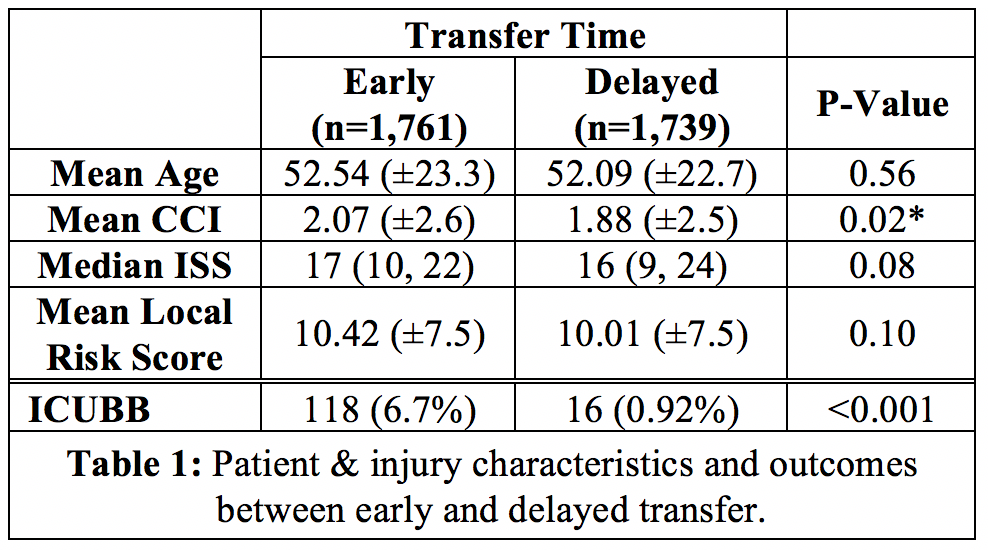Impact of Delay in ICU Transfers on the Rates of ICU Re‑Admissions: an Unintended Randomized Study
*Stephen E Ranney, Ajai K Malhotra, *Peter Callas, *Lloyd Patashnick, *Samy Ramadan, *Jennifer Gratton, *Amy Sharpe, *Deirdre LaFrance, Margaret A Tandoh, William E Charash, *Gary C An, *Tim H Lee
University of Vermont Medical Center, Burlington, VT
Objective: Determine if delayed ICU transfer is protective against unplanned ICU re-admission or ICU bounce-back (ICUbb).
Design: Retrospective, cohort study with inadvertent randomization using a trauma repository.
Setting: Rural, academic, Level 1 verified Trauma Center.
Patients: All adult, trauma patients admitted to the ICU at any point during their hospitalization over a 10-year period (January 2008-April 2018).
Interventions: Patients were inadvertently randomized to early or delayed ICU transfer by inherent hospital inefficiencies and limited bed availability. We defined delayed transfer as physical transfer from the ICU greater than 24 hours after placing a transfer order.
Main Outcome Measures: Rate of ICUbb between delayed and early ICU transfer.
Results: Of the 3,500 patients admitted to the ICU, 134 (3.8%) experienced ICUBB. The early and delayed groups were comparably matched (Table 1). 118/1,761 (6.7%) of the early group and 16/1,739 (0.92%) of the delayed group experienced an ICUbb. This was statistically different (P<0.05). Delayed transfer was independently protective against ICUbb (OR=0.123: 95% CI 0.076-0.219).
Conclusions: This study utilizes unintended randomization due to inherent hospital inefficiency to demonstrate that additional ICU time is protective against ICUbb. Further studies should identify specific care in the ICU that protects against ICUbb as well as better identify patients that may benefit from additional ICU time. 

Back to 2019 Posters




